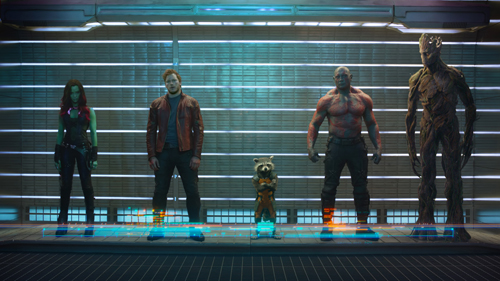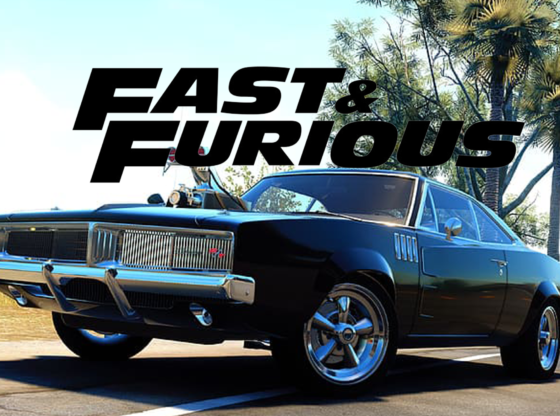In addition to the rapid rise of dystopian movies in the past four years, the film industry’s production of superhero movies has soared—both in number of films and money made from each film. Companies like Marvel and DC have begun planning years in advance for the number of upcoming superhero-based films (Marvel has even planned until 2028 with their films). All of the upcoming films are based on comics, with some of them being reboots. Most obvious is the recent (and better) remake of “Spider-Man,” as well as the plans for a Ben Affleck Batman.
In the next two years, Marvel’s plan for films is the summer releases of “Guardians of the Galaxy” and “X-Men: Days of Future Past,” 2015 releases of a rebooted “Fantastic Four,” “The Avengers: Age of Ultron” and “Ant-man,” and 2016 releases of “Captain America 3,” “X-Men: Apocalypse” and “The Amazing Spider-Man 3.” Potential 2016 releases also include “Sinister Six” and “Doctor Strange.” Though Marvel appears to be the highest grossing superhero-centric company, DC is still trying hard to make its way in the market, with expected releases of “Batman vs. Superman” in 2016, “Justice League” in 2018 and “Wonder Woman,” with no anticipated release date. The rest of 2014’s comic book-based films include “Godzilla,” “Jupiter Ascending,” a new “Transformers” and “Teenage Mutant Ninja Turtles,” in addition to many others.
The expansive film plans will be exciting for any fans of action or superheroes, but it demonstrates a very troubling trend in the Hollywood sphere. Nearly no high-budget, high-income films are based off of original work. Sequels, reboots and translations seem to be the only thing major Hollywood companies want to produce at this point in time, all in the name of making money. Sadly, even though a vast number of movies were previously books or movies, society is still buying tickets and feeding the frenzy. Out of the top 10 overall grossing films in the world, seven of them were sequels to previous films; in addition, two of the films were based off books, two were reboots of previous franchises and five were comic book translations to the silver screen.
From where is this troubling trend coming? Some speculate that this is a subconscious reaction to 9/11 and the following war on terror. These superheroes in the films viewers pay so much to watch provide both a distraction from internal fears and hope for a better world. Another reason could be the drop in movie attendance, with admissions falling by 20 million between 2012 and 2013. This causes a rise in ticket prices to keep the theaters functioning (as well as a rise in refreshment and concession prices); in turn, the industry has to churn out a mass market film that will help them actually make money. The cost of creating a movie in most cases has soared past the revenue actually gained. Finally, another reason is accessibility. Nowadays with the influx of Netflix, Hulu Plus and Amazon Prime, it has become much easier and affordable to buy a membership and wait for the film to hit laptop screens everywhere, instead of having to drive to a theater and then deal with the potential for loud patrons, while forking over ten dollars.
Yet Hollywood’s ability to pull from comic books is pretty selective, as it is with books and reboots. All these superhero movies? Nearly no people of color. The inclusion of women? Laughable. The industry has been overcome by the need for race normativism, which is unrealistic and close-minded. For all the upcoming films, this trend shows no slight chance of change. The industry seems to believe that the inclusion of a single minority character hits an internal quota, therefore allowing the rest of the cast to be white. One specific example is the upcoming “Star Wars VII.” Out of the seven newly cast characters, only one is female and only one is not white. Another example is the racism fiasco that occurred during the casting of “The Amazing Spider-Man” back in 2010. Donald Glover (“Community”) was initially poised to take over the part of Peter Parker, yet an utterly astounding backlash against a black Spider-Man ultimately led to Andrew Garfield (“The Social Network”) getting the part (though Marvel claimed the casting decision was not due to racial biases).
Though there are a variety of problems with the industry of superhero-dom right now, that does not diminish the fact that a good many of these newly released films are enjoyable and, in some cases, great. With each passing film that makes millions, each following film has a vast amount of money at its disposal. Even in the past five years, film technology has immensely improved as an asset to both production companies and viewers. Representing more minorities in films does not look to be a change that will be happening soon, just as the film industry does not seem to be backing off its gigantic superhero output. If indie movies look to be more your type, make sure you go out and support them in theaters, lest the blockbusters engulf films everywhere; if you are a lover of action and big hit movies, you have definitely got a busy and fun-packed couple of years in front of you.











